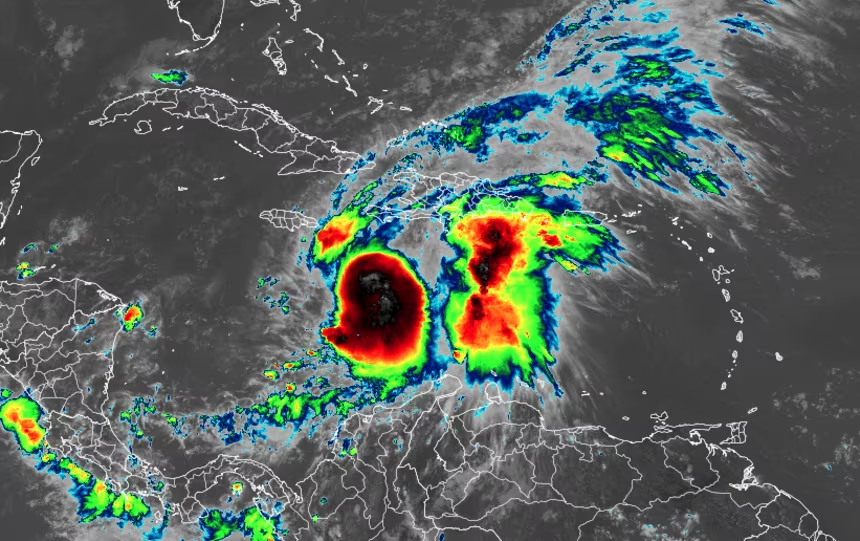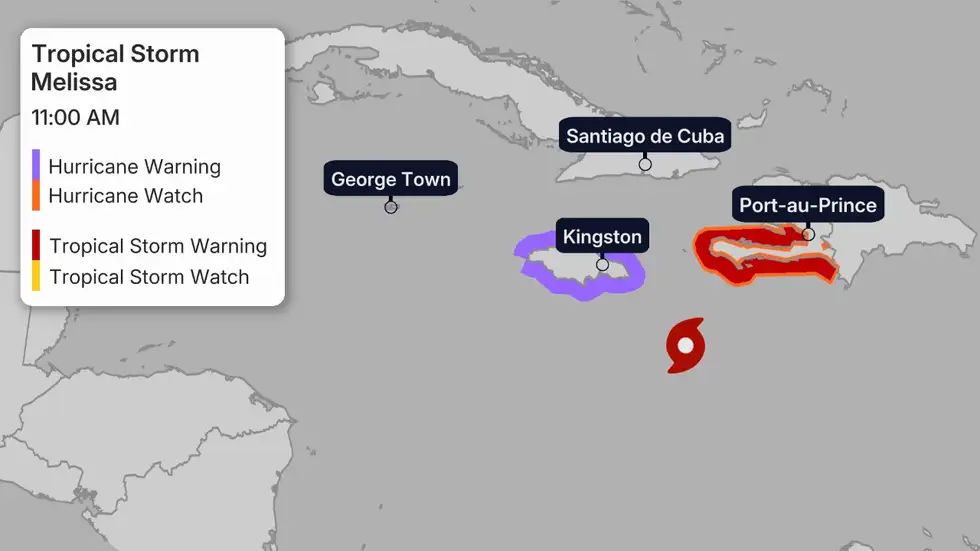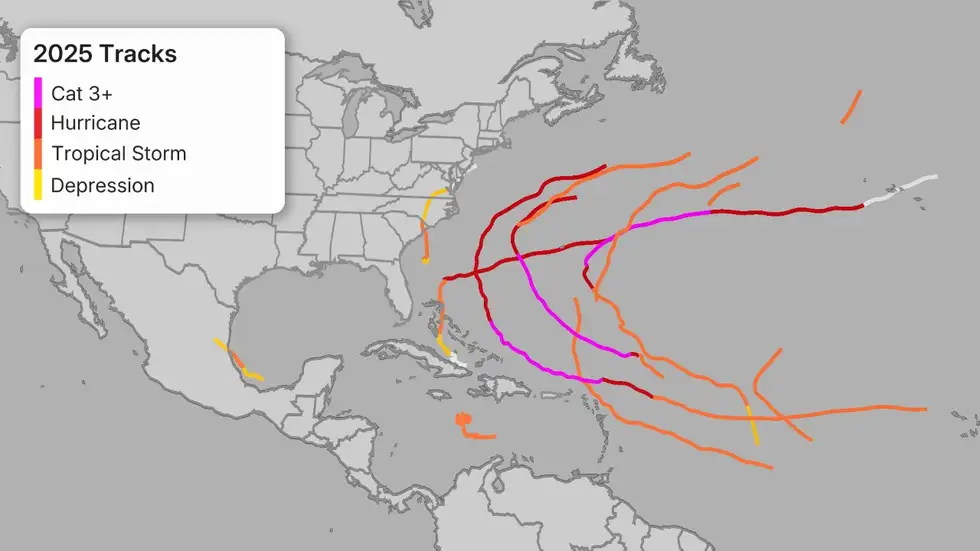It started as a small tropical disturbance. But in just a few days, Tropical Storm Melissa turned into one of the most watched weather events of 2025. Now, Jamaica and Haiti are on high alert. And for good reason.
A Storm That’s Moving Too Slowly
Melissa isn’t racing through the Caribbean — it’s crawling. This slow-moving storm means one thing: prolonged rainfall. Experts say Melissa’s sluggish pace is what makes it dangerous. Even if winds stay moderate, continuous rain over mountain regions could trigger massive flooding and deadly landslides. Haiti, with its fragile infrastructure and steep terrain, faces a serious risk of flash floods. Meanwhile, Jamaica’s southern parishes — including Kingston and Clarendon — are bracing for storm surges and wind damage. (source: The Weather Channel’s latest storm forecast)

Jamaica Under Hurricane Watch
The Jamaica Meteorological Service issued alerts as Melissa approached from the southeast Caribbean. Winds may not reach Category 1 hurricane levels yet, but the threat lies in torrential rainfall and coastal flooding. Local authorities have urged residents in low-lying areas to move to safer ground. Emergency shelters are being opened across the island, and officials are preparing for power outages and blocked roads. Fishermen and coastal communities have already been warned to stay away from the sea.

Haiti Faces Another Test of Resilience
For Haiti, Melissa’s arrival brings painful memories of past disasters. Flooded rivers, landslides, and collapsed homes have already been reported in several southern districts. The country’s disaster response teams are working around the clock, but limited resources make rescue operations difficult. Meteorologists warn that even moderate storms can be devastating in Haiti because of deforestation and poor drainage systems.
Climate Change and the “New Normal” of Storms
Here’s where it gets scary. Scientists point to warmer Caribbean Sea surface temperatures as the main reason storms like Melissa are intensifying faster. Warmer waters mean more evaporation. More evaporation means heavier rainfall and higher storm surges. This isn’t just about one storm — it’s about how the 2025 Atlantic hurricane season is breaking old patterns. Melissa is the 13th named storm this year, and meteorologists say the trend of longer, wetter, and slower storms will only grow worse with climate change.
For a deeper look at environmental impacts, read: 👉 Climate Change and Extreme Weather Patterns
The Road Ahead
As Tropical Storm Melissa continues its path toward Jamaica, Haiti, and possibly Cuba, the key concerns are clear:
- Flooding and landslides from prolonged rain
- Storm surges along southern coastlines
- Infrastructure damage and power outages
- Public safety and emergency response
People across the Caribbean are preparing the best they can — stocking food, securing homes, and hoping the storm weakens. But Melissa is also a warning sign. A reminder that the Caribbean is on the frontline of a climate crisis that’s reshaping weather as we know it.
For more regional updates, check: 👉 NASA’s Groundbreaking Discovery: Earth Now Has Two Moons (trending science story)
Final Thoughts
Whether or not Melissa becomes a hurricane, it’s already made one thing clear: The Caribbean must adapt — fast. Better storm tracking, stronger infrastructure, and real climate action are no longer optional. They’re survival.

FAQs
Q1: Where is Tropical Storm Melissa right now?
Melissa is currently moving slowly across the central Caribbean, just south of Jamaica, bringing heavy rain and gusty winds.
Q2: Will Melissa turn into a hurricane?
Meteorologists say there’s a chance Melissa could strengthen into a Category 1 hurricane, depending on sea temperature and wind conditions.
Q3: Which areas of Jamaica are most at risk?
Southern and eastern parishes — including Kingston, Clarendon, and St. Thomas — are most vulnerable to flooding and coastal surges.
Q4: How is Haiti preparing for Tropical Storm Melissa?
Haiti’s Civil Protection Agency has activated emergency response units, focusing on evacuations and flood monitoring in the southern regions.
Q5: How does climate change affect storms like Melissa?
Warmer ocean temperatures and slower atmospheric movement make storms intensify faster and dump more rainfall, increasing flood risks.
